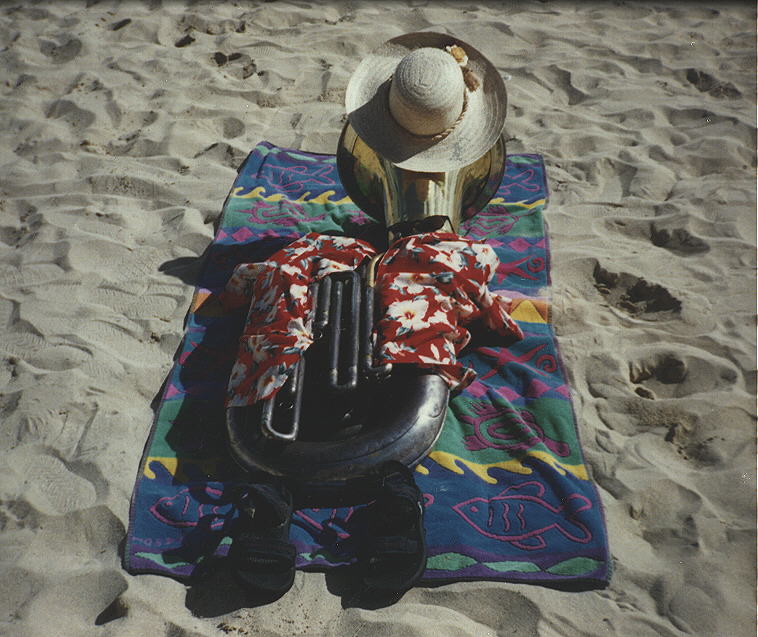Principal Tuba Honolulu Symphony (One Year Vacancy)
Posted: Wed Mar 07, 2007 2:30 am
For anyone who is interested in the Honolulu Symphony Principal Tuba audition please go to the Honolulu Symphony website (http://www.honolulusymphony.com) for more information. The advertisement was in this month's International Musician.
Base pay will be 34 weeks at $1,014.71 plus 25% overscale plus benefits (medical/insurance/etc). The audition information is below:
[b]The Honolulu Symphony announces the following vacancies for the 2007-2008 Season
(pending results of local auditions):
TENURE-TRACK FULL-TIME POSITIONS:
Associate Principal/3rd Flute/Piccolo
Fourth Horn
Principal Trombone
Section First Violin (1 position)
Section Second Violin (1 position)
Section Cello (1 position)
ONE-YEAR FULL-TIME POSITIONS ALSO AVAILABLE:
Section First Violin (1 position)
Third/Bass Trombone
Principal Tuba
Section Viola
TENURE-TRACK PER-SERVICE POSITIONS ALSO AVAILABLE:
Section Viola (1 position)
Section Cello (1 position)
Section Bass (1 position)
Mainland US auditions are planned for late May/early June 2007
exact dates and location(s) to be determined.
Highly qualified applicants must mail or fax a current
one-page, typed resume, including current address,
telephone number and email, to:
Honolulu Symphony Auditions
attn: Andrew Eckard, Audition Coordinator
650 Iwilei Rd., Suite 202, Honolulu, HI 96817
FAX: (808) 524-1507
REPERTOIRE WILL NOT BE GIVEN OUT OVER THE PHONE OR BY EMAIL.
Repertoire and Registration Forms will be available at www.HonoluluSymphony.com.
Base salary for 2007-2008 Season:
$1,014.71/wk for 34 weeks, plus benefits
Per-service guarantee for 2007-2008 Season:
$126.84/svc for 84 services, plus benefits
Position scale guaranteed by CBA:
25% for Principal, 10% for Associate Principal
If a vacant position is won by a current HSO member, the resulting vacancy may be offered to another winning candidate.
The Honolulu Symphony Audition Committee reserves the right to dismiss at any time any candidate not meeting the highest professional standards at these auditions. Candidates must show proof of eligibility to be employed in the U.S.A.
The Honolulu Symphony Society is an equal opportunity employer.[/b]
Dave Saltzman
Base pay will be 34 weeks at $1,014.71 plus 25% overscale plus benefits (medical/insurance/etc). The audition information is below:
[b]The Honolulu Symphony announces the following vacancies for the 2007-2008 Season
(pending results of local auditions):
TENURE-TRACK FULL-TIME POSITIONS:
Associate Principal/3rd Flute/Piccolo
Fourth Horn
Principal Trombone
Section First Violin (1 position)
Section Second Violin (1 position)
Section Cello (1 position)
ONE-YEAR FULL-TIME POSITIONS ALSO AVAILABLE:
Section First Violin (1 position)
Third/Bass Trombone
Principal Tuba
Section Viola
TENURE-TRACK PER-SERVICE POSITIONS ALSO AVAILABLE:
Section Viola (1 position)
Section Cello (1 position)
Section Bass (1 position)
Mainland US auditions are planned for late May/early June 2007
exact dates and location(s) to be determined.
Highly qualified applicants must mail or fax a current
one-page, typed resume, including current address,
telephone number and email, to:
Honolulu Symphony Auditions
attn: Andrew Eckard, Audition Coordinator
650 Iwilei Rd., Suite 202, Honolulu, HI 96817
FAX: (808) 524-1507
REPERTOIRE WILL NOT BE GIVEN OUT OVER THE PHONE OR BY EMAIL.
Repertoire and Registration Forms will be available at www.HonoluluSymphony.com.
Base salary for 2007-2008 Season:
$1,014.71/wk for 34 weeks, plus benefits
Per-service guarantee for 2007-2008 Season:
$126.84/svc for 84 services, plus benefits
Position scale guaranteed by CBA:
25% for Principal, 10% for Associate Principal
If a vacant position is won by a current HSO member, the resulting vacancy may be offered to another winning candidate.
The Honolulu Symphony Audition Committee reserves the right to dismiss at any time any candidate not meeting the highest professional standards at these auditions. Candidates must show proof of eligibility to be employed in the U.S.A.
The Honolulu Symphony Society is an equal opportunity employer.[/b]
Dave Saltzman

